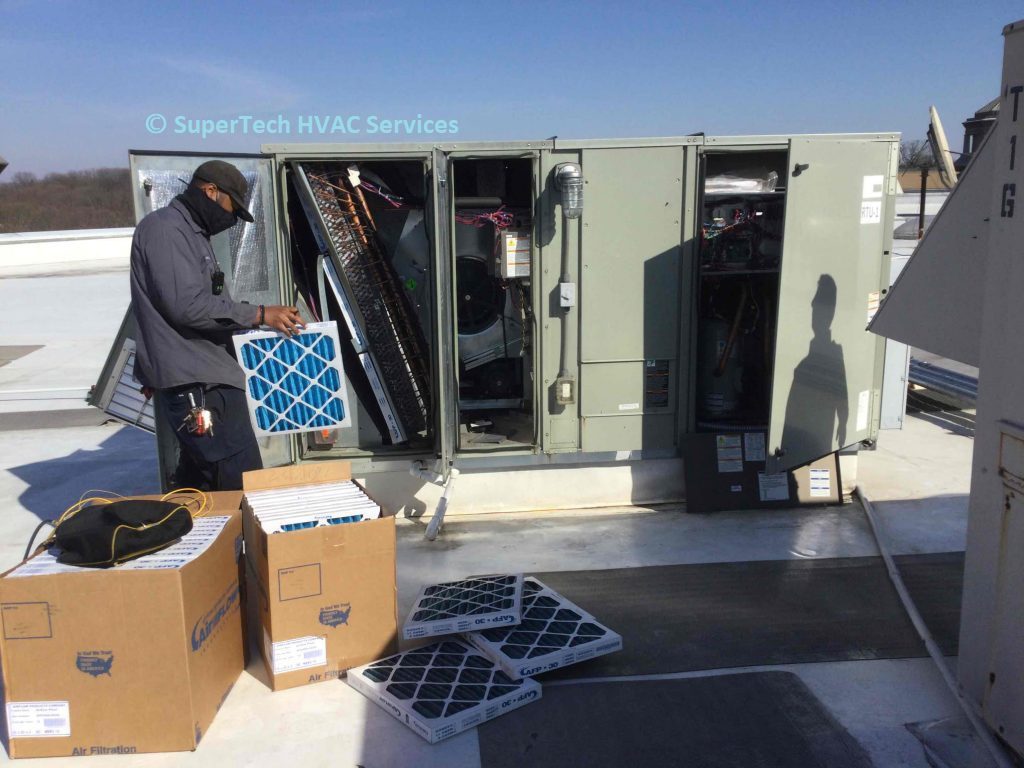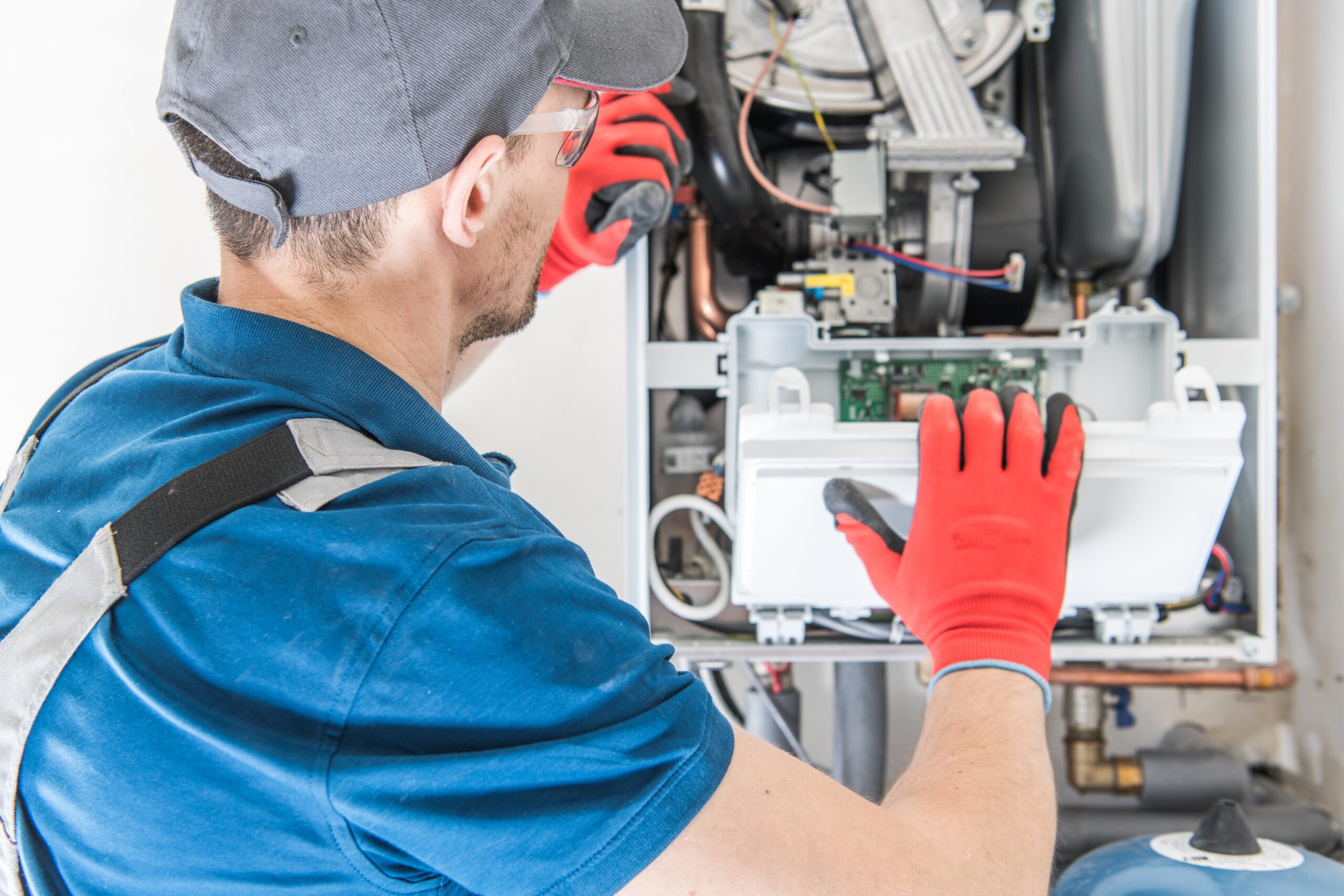Prevent Costly Repairs with Scheduled heat pump service
Prevent Costly Repairs with Scheduled heat pump service
Blog Article
Selecting In Between a Warmth Pump and Heating System: Secret Considerations for Your Heating And Cooling Requirements
When assessing heating options for cooling and heating requires, the decision in between a heatpump and a heating system can be complicated. Each system uses distinct advantages tailored to particular environments and power performance goals. Understanding these distinctions is necessary for making an informed option. Key variables such as setup costs and environmental impact additionally make complex the selection process. Which alternative absolutely aligns with one's comfort and sustainability preferences? The following sections will explore these considerations thoroughly.
Recognizing Warm Pumps: Just How They Work and Their Benefits
While lots of homeowners think about different heating alternatives, recognizing just how warmth pumps function and their benefits can considerably influence their choice. Warm pumps run by moving warm as opposed to generating it. In the winter, they extract warm from the outdoors air or ground and transfer it inside, while in the summer season, they reverse this process, cooling the home by removing warm outside. This dual performance makes them functional for year-round climate control.One of the key advantages of warm pumps is their power performance. They utilize considerably less electricity contrasted to conventional home heating systems, potentially resulting in reduced utility expenses (heat pump service). In addition, warmth pumps have a smaller sized carbon impact, making them an eco-friendly option. They additionally require less upkeep than standard systems, adding to lasting cost financial savings. In general, understanding the technicians and advantages of heatpump can assist homeowners make notified choices concerning their home heating and cooling down needs
Checking Out Heating Systems: Kinds, Procedure, and Advantages
Heating systems are available in different types, consisting of gas, electrical, and oil designs, each with unique operational mechanisms. Recognizing these differences is important, as they influence performance and home heating performance. Furthermore, furnaces offer various advantages, such as constant warm outcome and reliability in chillier environments.
Kinds of Heaters
Heater can differ considerably in design and operation, with heaters being a preferred choice among property owners. There are several types of furnaces, each using different fuel resources and technologies. Gas heaters are common, leveraging gas to generate warm effectively. Electric heaters, on the other hand, use electric resistance to produce warmth, commonly favored for their straightforward setup. Oil furnaces, while less typical, work in locations with minimal gas accessibility (heat pump service). Additionally, condensing furnaces maximize power performance by catching and reusing exhaust gases. Each type operates via a system of warm exchangers and ductwork to disperse warm air throughout a home. Recognizing the distinctions between these heating system types is essential for notified HVAC choices
Benefits of Furnaces
For property owners looking for trustworthy heat throughout chilly months, the benefits of heaters are considerable. Heating systems give consistent heating, making sure also temperature levels throughout the home. They are particularly efficient in severe chilly, often outshining warmth pumps in frigid conditions. Different types, including gas, electric, and oil heating systems, use adaptability to fulfill diverse needs and preferences.Furnaces also tend to have lower initial installation costs compared to heatpump, making them a more available option for numerous. Their robust design adds to a longer life-span, with many units lasting over 15 years with proper maintenance. Furthermore, contemporary heating systems are commonly furnished with sophisticated innovation for improved performance, which can cause reduced power expenses. In general, heaters remain a reliable option for effective home heating.

Energy Performance: Comparing Warm Pumps and Furnaces
When contrasting energy effectiveness in between heat pumps and furnaces, the Seasonal Energy Performance Proportion (SEER) plays an important duty in determining performance. Furthermore, a functional cost analysis exposes the lasting economic implications of each system. Understanding these aspects can lead homeowners in making notified decisions regarding their home heating remedies.
Seasonal Power Efficiency Proportion
Power performance plays an essential function in the decision-making process in between warm pumps and heating systems, especially when thinking about the Seasonal Energy Performance Proportion (SEER) This statistics steps the cooling effectiveness of warm pumps over a whole air conditioning period, supplying a standard method to examine performance. Higher SEER ratings indicate greater power performance, converting to reduced energy usage and decreased utility bills. In contrast, heaters are usually examined utilizing the Annual Fuel Utilization Performance (AFUE) ranking, which mirrors home heating effectiveness. When comparing these two systems, property owners ought to focus on SEER rankings for warm pumps, as they directly influence general energy savings and ecological sustainability. A thorough understanding of SEER can notably affect the long-term satisfaction and cost-effectiveness of the picked heating and cooling option.
Functional Price Analysis
Understanding the functional costs connected with heatpump and furnaces is essential for property owners evaluating their choices. Warm pumps generally supply greater power effectiveness, converting electrical energy into warmth with very little waste. This results in reduced monthly energy costs, particularly in modest climates. Alternatively, standard heating systems, particularly gas designs, might have lower in advance expenses yet can incur greater operational costs with time because of sustain prices and effectiveness ratings.Moreover, heatpump can work as both home heating and cooling down systems, possibly minimizing the demand for separate heating and cooling systems. While first investments for warm pumps may be higher, their long-term cost savings in power performance can make them an extra affordable selection for many homes. Cautious evaluation of local energy rates is important to identify the very best alternative.
Installation Costs: What to Expect for every Heater
Setup expenses for heater can differ substantially in between warmth pumps and furnaces, affecting home owners' choices. Warmth pumps generally have higher upfront setup expenses, commonly varying from $3,500 to $8,000, depending on the system size and complexity of installation. This includes the exterior device, indoor handling system, and needed ductwork adjustments. On the other hand, heaters often tend to have reduced first prices, averaging in between $2,500 and $6,000, which can be appealing for budget-conscious property owners. Nonetheless, installation costs can raise if considerable ductwork is required.Moreover, the selection of gas type for furnaces-- gas, gas, or electric-- can also influence setup prices. While heatpump offer power effectiveness, their initial financial investment may discourage some buyers. Inevitably, examining installment expenses alongside long-lasting savings and performance will aid property owners in making informed decisions concerning their heater.
Environment Considerations: Which System Executes Better in Your Location
Exactly how do environment conditions influence the performance of heater? The performance of warmth pumps and furnaces can differ greatly depending upon the neighborhood climate. In modest environments, heatpump succeed by efficiently transferring warmth from the outside air, making them an energy-saving choice. Nonetheless, their efficiency reduces in extremely chilly temperature levels, where they may have a hard time to remove sufficient heat. Alternatively, heating systems, especially gas versions, give reliable and consistent heat no matter outdoor conditions, making them better in colder regions.In areas that experience milder wintertimes, heatpump can run effectively year-round, offering both cooling and heating. On the other hand, regions with extreme winters often gain from the robustness of furnaces. Ultimately, understanding the local climate is important when choosing between a warm pump and a heating system, as it directly affects their operational performance and total efficiency.
Upkeep Requirements: Long-Term Treatment for Warmth Pumps vs. Furnaces
While both heatpump and furnaces require regular upkeep to ensure peak efficiency, their certain needs and treatment routines vary significantly. Furnaces commonly need much less frequent interest, with yearly assessments being adequate to look for gas leaks, tidy filters, and evaluate total performance. Their simpler layout commonly allows for uncomplicated repairs.In contrast, heatpump necessitate biannual upkeep because of their browse around here twin role in cooling and heating. This consists of cleansing coils, checking cooling agent levels, and ensuring that both the interior and exterior devices function at their finest. In addition, heatpump upkeep often includes more elaborate parts, making professional maintenance essential.Neglecting upkeep can lead to lessened efficiency and boosted energy expenses for both systems. Ultimately, house owners should think about these long-lasting treatment needs when choosing between a warm pump and a heating system, as aggressive upkeep can extend the lifespan and efficiency of either system significantly.
Environmental Influence: Selecting a Sustainable Home Heating Option
The environmental effect of furnace is a crucial assessment for house owners looking for lasting alternatives. Warmth pumps are generally more energy-efficient than traditional heaters, as they move warmth as opposed to produce it, substantially reducing carbon emissions. By utilizing eco-friendly power sources, such as geothermal or air-source heatpump, property owners can even more reduce their ecological footprint.On the other hand, gas heaters send out greenhouse gases and add to air pollution, though they typically offer higher warmth result. Developments in modern technology have actually led to the development of high-efficiency heaters that minimize emissions.Ultimately, picking a heating system involves evaluating efficiency versus environmental influence. House owners are encouraged to mirror on regional power sources and motivations for sustainable systems, guaranteeing a selection that aligns with both personal convenience and environmental obligation. The choice affects not just immediate convenience but likewise long-term sustainability and environmental wellness.
Frequently Asked Inquiries
The Length Of Time Do Heat Pumps and Furnaces Typically Last?
The life-span of heatpump normally ranges from 15 to twenty years, while furnaces can last in between 15 to three decades. Regular upkeep substantially impacts their long life and efficiency in giving home heating remedies.
Can I Utilize a Warm Pump in Very Cold Climates?
Heat pumps can run in incredibly cold environments, however their efficiency reduces as temperatures decline. In such look at this now conditions, additional home heating you could check here resources might be needed to keep comfy interior temperature levels and ensure peak performance.

What Is the Noise Level of Warmth Pumps Versus Furnaces?
The sound levels of heatpump and heaters differ substantially. Typically, warm pumps operate even more quietly than standard heating systems, making them preferable for those delicate to sound, while heaters may generate louder functional sounds throughout heating cycles.
Are Warm Pumps Suitable for Both Cooling And Heating?
Heatpump are certainly ideal for both heating & cooling (heat pump installation ooltewah tn). They operate by transferring warm, providing reliable temperature level control year-round, making them a flexible choice for house owners seeking an all-in-one HVAC service
What Size Heating Unit Do I Required for My Home?
Determining the appropriate dimension heating unit for a home needs assessing elements such as square video, insulation high quality, regional environment, and the home's format. Consulting an expert can ensure an exact analysis and suitable comfort. Heat pumps usually provide greater energy performance, transforming electric power right into warm with very little waste. In moderate climates, warmth pumps stand out by successfully moving heat from the outside air, making them an energy-saving choice. Conversely, heaters, specifically gas designs, give constant and trusted warm no matter of outdoor problems, making them more effective in cooler regions.In areas that experience milder winter seasons, heat pumps can run successfully year-round, supplying both heating and cooling. Heat pumps are generally more energy-efficient than conventional heating systems, as they move warm rather than generate it, greatly decreasing carbon emissions. By utilizing renewable power resources, such as geothermal or air-source heat pumps, homeowners can further lessen their eco-friendly footprint.On the various other hand, natural gas furnaces emit greenhouse gases and add to air contamination, though they typically supply higher warm output.
Report this page